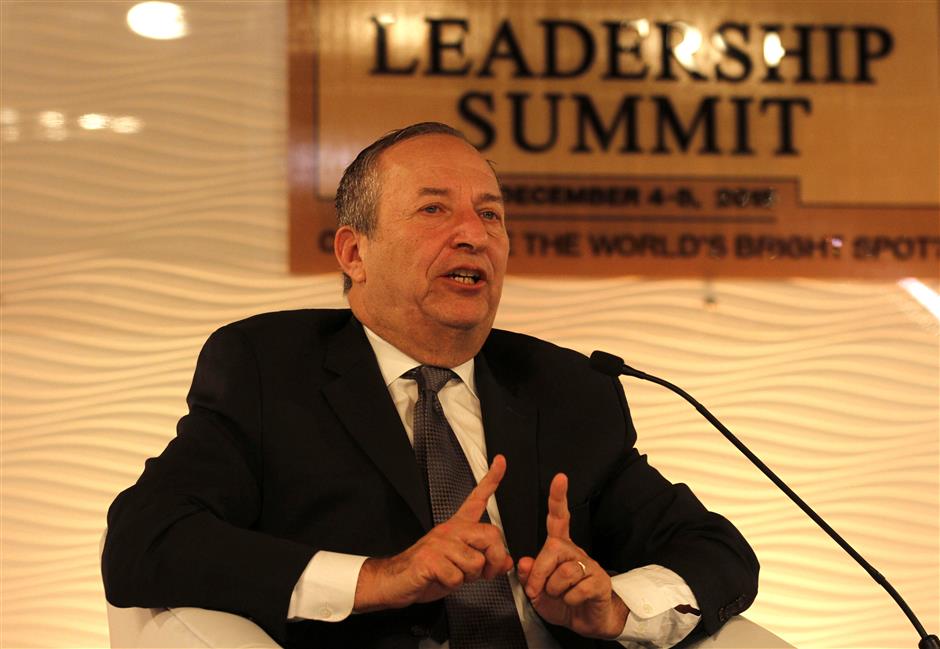Labeling China currency manipulator damages US credibility, says former US Treasury Secretary

In this file photo, economist and President Emeritus, Charles W. Eliot Professor of Harvard University Lawrence Summers speaks during a session at Hindustan Times Leadership Summit on December 5, 2015, in New Delhi, India.
Lawrence Summers, former US treasury secretary and economic adviser to former President Barack Obama, on Tuesday criticized US Treasury Secretary Steven Mnuchin for naming China a currency manipulator, saying such a move has damaged the US credibility.
"By labeling as Chinese currency manipulation an exchange-rate move that was obviously a natural response to his boss's policies, the secretary has damaged his credibility and that of his office," said Summers, a professor at and past president of Harvard University, in an opinion piece on The Washington Post.
"It will be harder now in the next difficult financial moment for Treasury Department pronouncements to be credited by market participants," he said, emphasizing that "the move down in the yuan on Monday was not artificial -- it was an entirely natural market response to newly imposed US tariffs."
"Without some mercantile advantage, and with ongoing efforts to prop up the exchange rate and so raise export prices and reduce import prices, there is no credible manipulation claim here," Summers argued.
Ignoring market signals and economic common sense, the US Treasury Department on Monday designated China as a currency manipulator. In a response to the designation, China's central bank refuted the unilateral move, saying the label does not meet the quantitative criteria for the so-called "currency manipulator" set by the US Treasury Department.
Further, "the president's flailing bluster" risks real economic damage as businesses and consumers become fearful and hold off on spending, Summers continued, while noting that the risk of recession going forward might now be as high as any time since the 2008 financial crisis.















